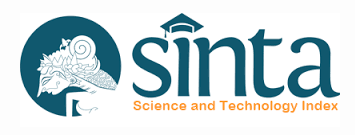KOMUNIKASI ORGANISASI BERBASIS ELEKTRONIK
Abstrak
Humans are organizational beings. Since entering the world, a person is always in the organization. Either the smallest organization such as family or Neighborhood Association (RT) until the greatest of organization is countries. Organization is a medium-to-life interdependence of goals. In order for the organization to run effectively it is necessary. Organizational communication can be either vertical or horizontal communication. In the current era of communication and information technology, every organization is required to use electronic technology. The electronic technology, both hardware, software, and networking, help organization can be more effective and efficient in achieving its goals. In addition, through electronic networks, the organization can serve the public without being limited by time and place, so that organizational goals can be more easily realized.
Referensi
Akil, Muhammad Anshar. 2011. Teknologi Komunikasi dan Informasi: Tinjauan Sistem, Perangkat, Jaringan dan Dampak. Penerbit Alauddin University Press, Makassar.
_____________________. 2012. Ilmu Komunikasi: Konstruksi, Proses dan Level Komunikasi Kontemporer. Alauddin University Press, Makassar.
Berger, Charles R; Michael E.Roloff; dan David R.Roskos-Ewoldsen. 2014. Handbook Ilmu Komunikasi. Penerbit Nusa Media, Bandung.
Hall, R. H. and Pamela S.Tolbert. 2005. Organizations: Structures, Processes, and Outcomes. Pearson Education, Inc., New Jersey.
Harris, T. E., and Mark D. Nelson. 2008. Applied Organizational Communication: Theory and Practice in a Global Environment. Taylor & Francis Group, LLC, New York.
Pace, R. W. and Don F. Faules. Deddy Mulyana (editor). 1998. Komunikasi Organisasi: Strategi Meningkatkan Kinerja Perusahaan. PT Remaja Rosdakarya, Bandung.
Sendjaja, S. D., dkk. 1999. Pengantar Komunikasi. Universitas Terbuka, Jakarta.
Tanenbaum, Andrew S; David J. Wetherall. 2011. Computer Networks. Pearson Education, Inc., USA.
Winardi, J. 2007. Manajemen Perilaku Organisasi. Penerbit Kencana, Jakarta.
Once an article was published in the journal, the author(s) are:
granted to the journal right licensed under Creative Commons License Attribution that allows others to share the work with an acknowledgment of the work's authorship. permitted to publish their work online in third parties as it can lead to wider dissemination of the work. continue to be the copyright owner and allow the journal to publish the article with the CC BY license receiving a DOI (Digital Object Identifier) of the work.





